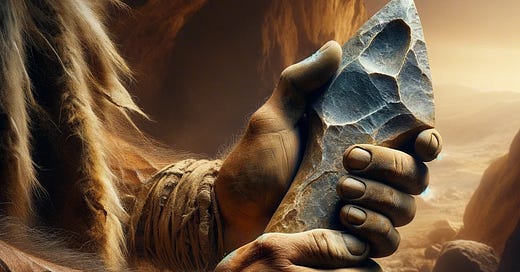Once upon a time, there was a tool called a hand axe. For over a million years, this was the killer app for human beings. It was the thing we used to make other things.
Hand axes were amazing! They could cut stuff and break things apart and be used to make other things out of wood, and even out of other rocks sometimes.
Small stones were used by our ancestors to chip away at those bigger stones, until they were left with something symmetrical that fit in the palm of the hand.
Over the million+ years of tool use, the hand axe did evolve considerably over that time, but the concept was the same: a bifacial stone, sharpened to a point at the tip, that could be used to cut, dig, smash… you name it. Most of all, it could be used to make other tools.
Hand axes gave birth to lots of subsequent technologies and tools, many of which then gave birth to lots of subsequent technologies and tools, and so on. It might be fair to say that the hand axe led to smartphones and self-driving cars.
Think ab…
Keep reading with a 7-day free trial
Subscribe to Goatfury Writes to keep reading this post and get 7 days of free access to the full post archives.




